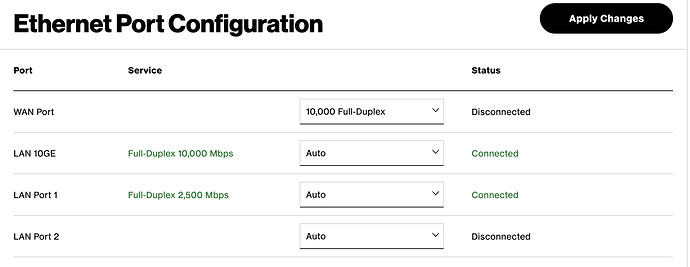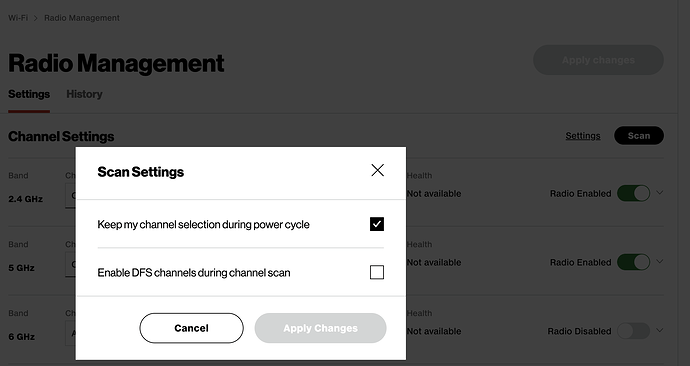I haven't tried SSH yet. I was also able to get UART, and my U-Boot version is almost a year older than yours (may 6th 2022).
Either way, it appears both of our versions of U-Boot has a severe vulnerability, but I'm not sure if it's exploitable or not.
I'll include my serial logs here:
Format: Log Type - Time(microsec) - Message - Optional Info
Log Type: B - Since Boot(Power On Reset), D - Delta, S - Statistic
S - QC_IMAGE_VERSION_STRING=BOOT.BF.3.3.1-00163
S - IMAGE_VARIANT_STRING=HAASANAZA
S - OEM_IMAGE_VERSION_STRING=CRM
S - Boot Config, 0x000002e3
B - 203 - PBL, Start
B - 2739 - bootable_media_detect_entry, Start
B - 24733 - bootable_media_detect_success, Start
B - 24737 - elf_loader_entry, Start
B - 26085 - auth_hash_seg_entry, Start
B - 64117 - auth_hash_seg_exit, Start
B - 78651 - elf_segs_hash_verify_entry, Start
B - 141281 - PBL, End
B - 153049 - SBL1, Start
B - 205204 - GCC [RstStat:0x10, RstDbg:0x600000] WDog Stat : 0x4
B - 211700 - pm_device_init, Start
B - 340929 - PM_SET_VAL:Skip
D - 128832 - pm_device_init, Delta
B - 343430 - pm_driver_init, Start
D - 5185 - pm_driver_init, Delta
B - 349499 - clock_init, Start
D - 2135 - clock_init, Delta
B - 353739 - boot_flash_init, Start
D - 8296 - boot_flash_init, Delta
B - 365695 - boot_config_data_table_init, Start
D - 1067 - boot_config_data_table_init, Delta - (575 Bytes)
B - 373320 - Boot Setting : 0x00000619
B - 377071 - CDT version:2,Platform ID:8,Major ID:1,Minor ID:0,Subtype:18
B - 384086 - sbl1_ddr_set_params, Start
B - 387899 - CPR configuration: 0x30c
B - 391345 - cpr_init, Start
B - 394121 - Rail:0 Mode: 5 Voltage: 824000
B - 399336 - CL CPR settled at 776000mV
B - 402173 - Rail:1 Mode: 5 Voltage: 896000
B - 406321 - Rail:1 Mode: 7 Voltage: 936000
D - 16500 - cpr_init, Delta
B - 413214 - Pre_DDR_clock_init, Start
B - 417209 - Pre_DDR_clock_init, End
B - 420595 - DDR Type : PCDDR4
B - 427366 - do ddr sanity test, Start
D - 1067 - do ddr sanity test, Delta
B - 431087 - DDR: Start of HAL DDR Boot Training
B - 435723 - DDR: End of HAL DDR Boot Training
B - 441518 - DDR: Checksum to be stored on flash is 1495648842
B - 451827 - Image Load, Start
D - 345534 - QSEE Image Loaded, Delta - (1381328 Bytes)
B - 797453 - Image Load, Start
D - 366 - SEC Image Loaded, Delta - (0 Bytes)
B - 804986 - Image Load, Start
D - 288103 - DEVCFG Image Loaded, Delta - (32548 Bytes)
B - 1093181 - Image Load, Start
D - 292739 - RPM Image Loaded, Delta - (93060 Bytes)
B - 1386011 - Image Load, Start
D - 310033 - APPSBL Image Loaded, Delta - (556778 Bytes)
B - 1696166 - QSEE Execution, Start
D - 61 - QSEE Execution, Delta
B - 1701961 - USB D+ check, Start
D - 0 - USB D+ check, Delta
B - 1708366 - SBL1, End
D - 1557604 - SBL1, Delta
S - Flash Throughput, 33504 KB/s (2064961 Bytes, 61632 us)
S - DDR Frequency, 600 MHz
S - Core 0 Frequency, 1651 MHz
U-Boot 2016.01-v00.04 (May 06 2022 - 14:40:18 +0800)
DRAM: smem ram ptable found: ver: 1 len: 4
2 GiB
NAND: Could not find nand-flash in device tree
SF: Unsupported flash IDs: manuf ff, jedec ffff, ext_jedec ffff
ipq_spi: SPI Flash not found (bus/cs/speed/mode) = (0/0/48000000/0)
0 MiB
MMC: <NULL>: 0 (eMMC)
PCI Link Intialized
In: serial@78B3000
Out: serial@78B3000
Err: serial@78B3000
Console Disable


